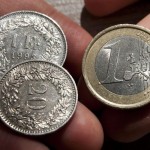 Gold was steady in a rangebound trade on Thursday after rising the most in two weeks on Wednesday ahead of the release of key U.S. economic data during the next two days and the conclusion of ECBs policy meeting later today. Silver and platinum were little changed, while palladium posted a moderate decline.
Gold was steady in a rangebound trade on Thursday after rising the most in two weeks on Wednesday ahead of the release of key U.S. economic data during the next two days and the conclusion of ECBs policy meeting later today. Silver and platinum were little changed, while palladium posted a moderate decline.
On the Comex division of the New York Mercantile Exchange, gold futures for settlement in December traded at $1 316.90 per troy ounce at 9:04 GMT, down 0.07% on the day. Prices held in a narrow range between days high and low of $1 319.80 and $1 314.60 per troy ounce respectively. The precious metal rose by 0.4% on Wednesday, the most in two weeks, but trimmed its weekly advance to less than 0.1% on Thursday.
Market players were wary and avoided taking big positions ahead of the release of todays U.S. Q3 advance GDP reading and last weeks initial jobless claims. The preliminary reading of the third quarter economic growth may show a smaller expansion compared to the preceding three months. Personal Consumption Expenditures probably fell in the third quarter, while core consumer spending is expected to have advanced. Meanwhile, the number of people who filed for initial jobless payments is expected to have fallen by 5 000 to 335 000 in the week ended November 2.
On Friday, October’s non-farm payrolls are projected to have further eased, while the unemployment rate likely inched up to 7.3%, according to analysts’ expectations. Personal income and personal spending are projected to have risen at a slower pace from a month ago. The preliminary reading of the Thomson Reuters/University of Michigan Consumer Sentiment Index may show a rebound to 74.5 in November, up from 73.2 in October.
Any better-than-expected readings of these key indicators will support the U.S. dollar by fueling speculations the Federal Reserve might begin trimming its quantitative easing program earlier than expected. A stronger greenback makes dollar-denominated raw materials more expensive for foreign currency holders and limits their appeal as an alternative investment.
Recent comments by senior Fed officials however called for more patience regarding the central banks moves. St. Louis Fed President James Bullard, one of Fed’s stimulus supporters, said earlier in the week the central bank shouldn’t rush tapering its monthly bond purchases because of low inflation, which has been running well below policy makers’ 2% official target. Apart from him, two other Fed officials who vote on policy this year, Governor Jerome Powell and Boston Fed President Eric Rosengren, also indicated the central bank may refrain from tapering for some time.
Fed Bank of San Francisco President John Williams, who doesnt vote this year, said on Tuesday that economic growth in recent months hasnt met expectations and that the economy was still a long ways from where policy makers want it to be.
Investors also eyed the conclusion of ECBs policy meeting later today to gauge the strength of the euro and its main counterpart, the dollar. Some analysts expect the European Central Bank might decide to cut interest rates at its policy meeting today to safeguard the economic recovery of the single-currency bloc after unemployment rate remained at record-high levels.
However, officials hinted yesterday policy makers will probably refrain from introducing any changes to rates. The European Commission trimmed its forecast for the Euro zone’s growth as unemployment in the region was at unacceptably high levels. A weakening of the euro boosts the U.S. dollar as its main counterpart, pressuring down dollar-denominated commodities. Recent upbeat data from Germany, the leading EU nation, added to speculations refinancing rates are likely to remain unchanged.
The U.S. dollar index, which measures the greenbacks performance against a basket of six major counterparts, traded at 80.55 at 9:05 GMT, down 0.02% on the day. The December contract shifted in a days range between 80.64 and 80.52. The U.S. currency gauge fell by 0.2% on Wednesday and extended its weekly decline to nearly 0.3% on Thursday.
Assets in the SPDR Gold Trust, the biggest bullion-backed ETF, rose by 2.10 tons to 868.42 tons yesterday after remaining unchanged for three days at the lowest level since 2009, data on the web site showed.
Mark Keenan, cross-commodity research strategist at Societe Generale, said for CNBC: “In the last few days gold has predominantly been driven by movements in the dollar. It will probably take a fresh direction once we get the nonfarm payroll data. Price movement is going to be data dependent. It is also critical to watch what happens with ETF holdings.”
Elsewhere on the precious metals market, silver futures for settlement in December were little changed at $21.760 per troy ounce at 8:55 GMT, down 0.04% on the day. Platinum for settlement in January slipped 0.14% to $1 465.30 an ounce. The metal rose to a one-week high of $1 472.10 earlier in the day after prices bottomed at $1 463.20 an ounce. Palladium December futures fell by 0.62% to $759.60 per troy ounce and held in days range between $764.80 and $759.20 an ounce.





